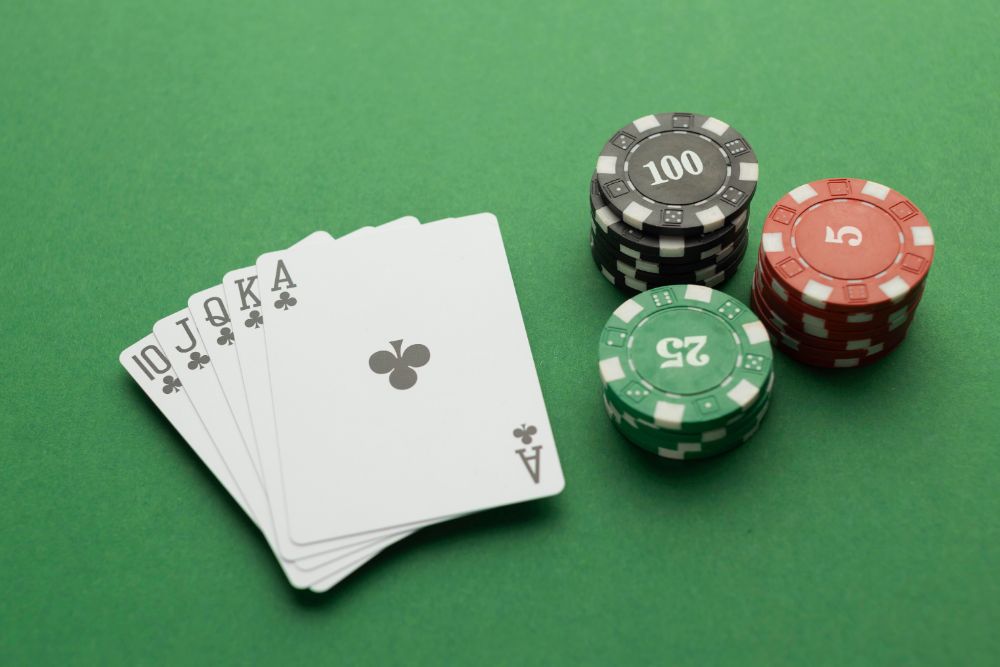Understanding the psychological aspects of poker can significantly improve your gameplay. By observing and interpreting opponents’ behaviors and body language, you can gain a strategic advantage that goes beyond the cards you hold. Anticipating your opponents’ moves before they make them can give you a competitive edge in the game. Stay informed to learn how psychology can enhance your poker skills effectively.
Observing Opponents’ Behavior
In poker, observing your opponents’ behavior is essential for gaining strategic insights into their gameplay. By paying attention to how they act with strong or weak hands, you can deduce their confidence levels. Look for patterns in their betting habits, such as hesitations or quick decisions, which can reveal their hand strength.
Additionally, observe their eye contact patterns, as this can indicate their comfort or discomfort in a particular hand. These observations can help inform your decisions during the game, as understanding your opponents’ mindsets is as crucial as your own hand.
Enhancing your observational skills can improve your gameplay and increase your chances of success at the poker table.
Leveraging Body Language Cues
Observing body language cues in poker can offer valuable insights into your opponents’ mindset and strategy during the game. It’s essential to note changes in behavior when players have strong or weak hands.
For instance, a sudden shift from maintaining eye contact to avoiding it might indicate a bluff. Other signs such as fidgeting, increased blinking, or flushed cheeks could suggest nervousness or excitement about a hand.
Conversely, a player adopting a relaxed posture with a steady gaze may signal a strong hand. It’s crucial to manage your own body language to prevent unintentional reveals.
Mastering the Art of Bluffing
In the game of poker, mastering the art of bluffing is a strategic skill that can impact your performance at the table. Bluffing entails creating the impression that you hold a strong hand, even if your actual cards are weaker. It requires a keen understanding of your opponents, emotional control, and a calculated approach to risk-taking. Successful bluffing can result in winning pots without the best hand, but there’s always the risk of being exposed.
To bluff effectively, it’s essential to observe opponents’ behaviors, vary betting strategies, and maintain a consistent table image. When used judiciously, bluffing can be a valuable tactic to enhance your poker gameplay.
Exploiting Psychological Tendencies
Understanding and utilizing psychological tendencies in poker can provide players with a strategic edge at the table.
One common tendency is risk aversion, leading some players to fold more frequently than statistically optimal. Exploiting this tendency involves employing strategic bluffing and applying pressure on cautious opponents to capitalize on their hesitancy.
Another prevalent tendency is the fear of loss, which can result in overly conservative play. To exploit this, players can strategically use aggressive tactics at opportune moments to disrupt their opponents’ comfort zones.
Additionally, observing and recognizing patterns of behavior exhibited by opponents when they’ve strong or weak hands can inform strategic adjustments to exploit their tendencies effectively. By leveraging these psychological factors, players can enhance their chances of success in poker.
Enhancing Decision-making Skills
Developing strong decision-making skills in poker is essential for success during gameplay. To enhance your abilities, it’s important to focus on understanding the key factors that influence your choices at the table.
Analyzing information such as opponents’ behavior, betting patterns, and the cards in play can help you make more informed decisions based on logic rather than emotions.
Practicing the evaluation of risk and reward scenarios will help you optimize your strategies. Consistent practice and deliberate decision-making are crucial for becoming a more confident and effective player over time.
By the way, take a look at our article https://slots-casinobest.com/2024/10/29/understanding-the-value-of-position-in-poker/
Conclusion
In summary, mastering the observation of opponents’ behavior, interpreting body language cues, honing bluffing skills, understanding psychological tendencies, and improving decision-making abilities can enhance one’s performance in poker. By consistently practicing and integrating these psychological strategies into gameplay, players can improve their chances of success by making strategic moves and calculated decisions. It is important to remain focused and sharp at the poker table to outsmart opponents effectively.

